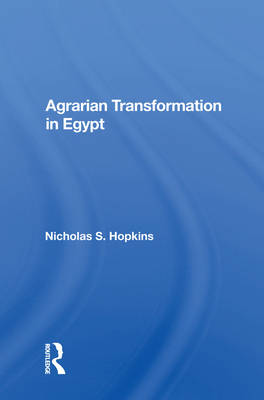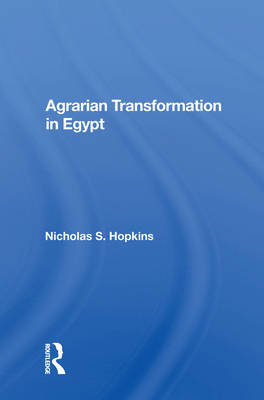
- Afhalen na 1 uur in een winkel met voorraad
- Gratis thuislevering in België vanaf € 30
- Ruim aanbod met 7 miljoen producten
- Afhalen na 1 uur in een winkel met voorraad
- Gratis thuislevering in België vanaf € 30
- Ruim aanbod met 7 miljoen producten
Zoeken
€ 195,95
+ 391 punten
Uitvoering
Omschrijving
The role of agricultural mechanization in the labor process in rural Egypt is the focus of this book, the first major anthropological study in Upper Egypt in a generation. Based on data gathered from a large village, the book portrays population trends, land-tenure patterns, irrigation practices, agricultural labor, mechanization, and marketing, and examines their implications for religion and local politics. The author emphasizes the changing role of the household and the relations between households, particularly the role of women and children. Especially important is Dr. Hopkins's interpretation of the process of differentiation, where class is seen as a dynamic outgrowth of the labor process rather than simply deduced from ownership or control of property. The paradox of his Egypt study is that while objective differentiation is present, class consciousness is not. Patterns of social control based on hierarchy and deference are still strong and ensure the reproduction of the social system.
Specificaties
Betrokkenen
- Auteur(s):
- Uitgeverij:
Inhoud
- Aantal bladzijden:
- 234
- Taal:
- Engels
Eigenschappen
- Productcode (EAN):
- 9780367013622
- Verschijningsdatum:
- 28/04/2020
- Uitvoering:
- Hardcover
- Formaat:
- Genaaid
- Afmetingen:
- 152 mm x 229 mm
- Gewicht:
- 589 g

Alleen bij Standaard Boekhandel
+ 391 punten op je klantenkaart van Standaard Boekhandel
Beoordelingen
We publiceren alleen reviews die voldoen aan de voorwaarden voor reviews. Bekijk onze voorwaarden voor reviews.











